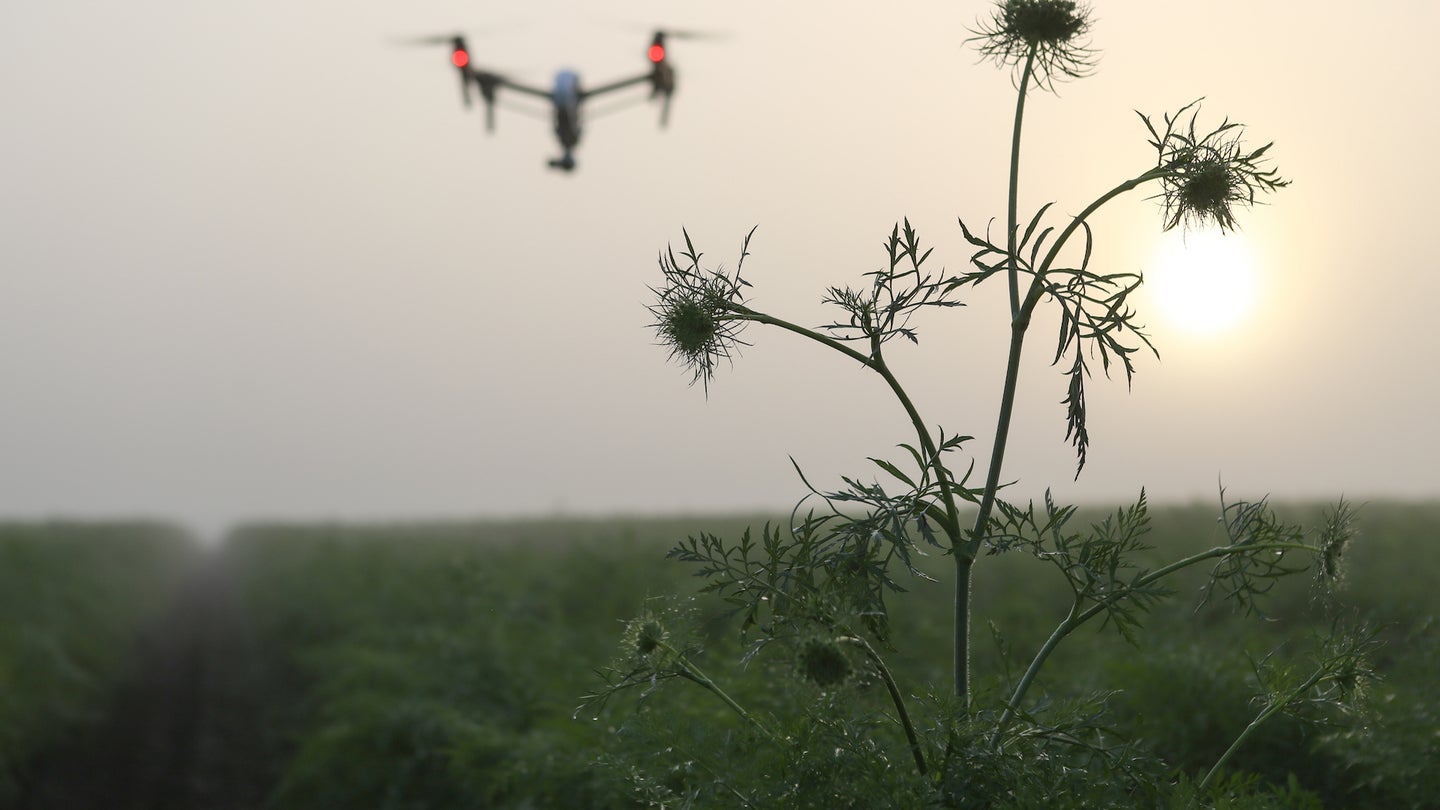Texas Threatens Jail Time for Flying Drones Over ‘Critical Infrastructure’
If you’re going to fly over a farm, oil, or gas facilities, make sure you’re above 400 feet.

Texas has always had a discerning outlook regarding automated vehicles, but while the focus is usually on the ground, this time the attention moves skyward. According to Engadget, a proposed would attach jail sentences for piloting a drone over oil, gas, telecom, and farm facilities under an umbrella term they call "critical infrastructure." In short, if this passes, anyone accidentally zipping their multicopter over the neighbor's farm or a fracking hub could face up to 180 days in jail. That is, of course, unless the drone is flying above 400 feet—which is arguably where 99 percent of drone users let their machines loose, anyway.
While some, like Carmen Fenton, PR aid to the Thornberry for Congress campaign, use House Bill 1643 to argue that drone use above farms could make biochemical attacks easier and endanger the entire food and water supply of the state, others are less fearful. According to CourtHouseNews, Fenton says, "We have to protect the food supply from biological terrorism like infectious diseases, and having a drone, and you don’t have any idea whose (sic) flying it, it could expose you.” She adds, "It could expose your livestock. And we don’t know if they’re dropping things, if they’re spreading things. But it could expose your livestock to security threats. If that were to ever happen it could drastically hurt our food supply and the economy.”
If the bill, drafted by Drew Springer (R-Muenster), is signed, it would take effect this September. The potential for this legislation to infringe on civil liberties is significant to people like Scott Pitta, CEO of the Association of Professional Drone Pilots, who says that "restricting airspace over a property isn’t something that state and local entities are allowed to do," and that the right to regulate airspace above a corporation's property is not theirs to alter. Pitta adds: "People seem to think that drones are these magical things. It’s battery-powered. For the most part, the commercial, multi-rotary drones that are out there folks are using, the ones that are easy to fly, are very limited with what they can carry. Can they be weaponized? Sure we’ve seen that with ISIS over in Iraq. You can turn just about anything into a weapon.”
The bill that passed the Senate last week differs from the one that passed the House last month, and those who want to see this legislation enacted will need to revise the two for cohesion and clarity of the law. While some use the threat of terrorism to justify further restrictive regulations and others attempt to dismantle this bill before it becomes law, we'll be keeping a close eye on this story as it develops. We've recently reported on the latest news regarding the FAA's attempts at creating a national database registry of drone operators. This will receive equal focus from us. This could, after all, become precedent for future legislation outside of Texas.
